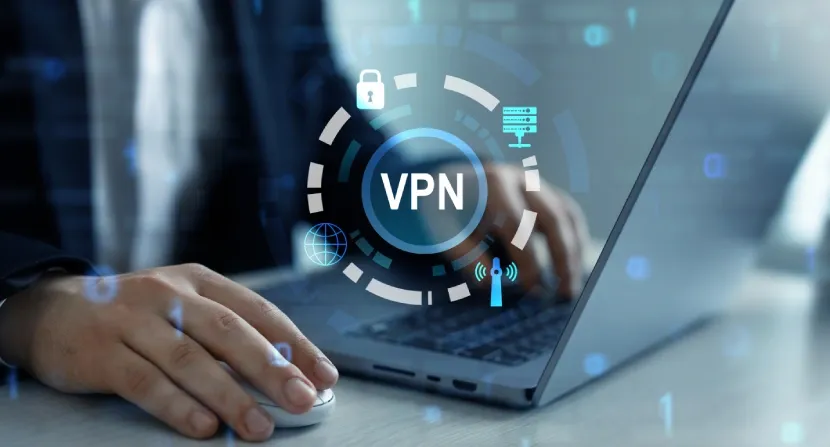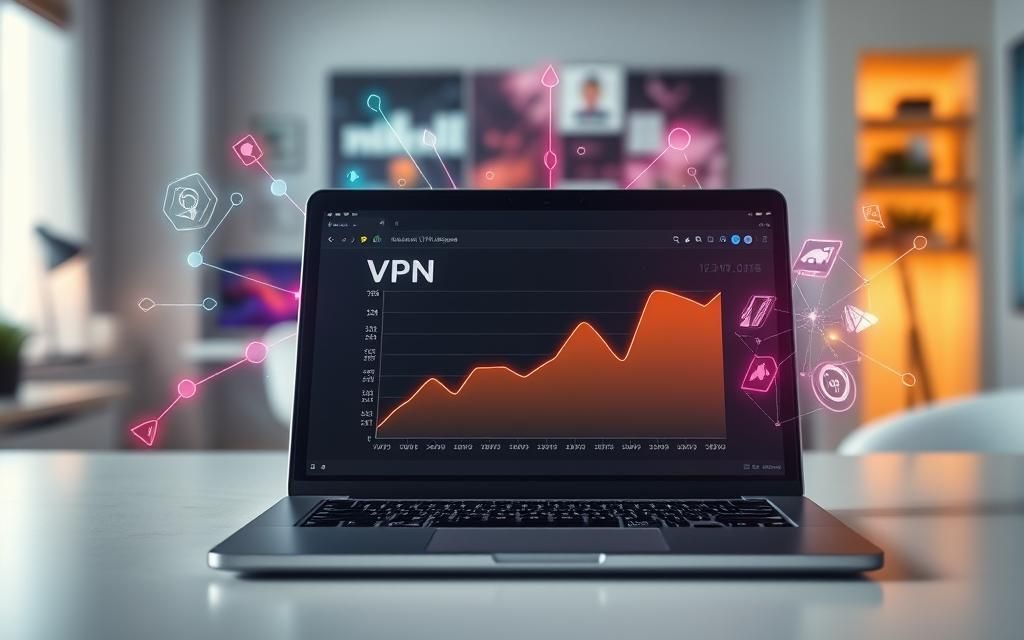Welcome to our guide on the different types of VPN, where we will simplify the complicated world of virtual private networks. In today’s digital landscape, where online privacy is a growing concern, understanding VPN protocols and services is essential for safeguarding your personal information.
A VPN, or virtual private network, is a technology that creates a secure and encrypted connection over a public network, such as the internet. It allows you to browse the web anonymously and securely by masking your IP address and encrypting your data.
There are various VPN protocols and services available. VPN protocols refer to the methods by which the VPN establishes a secure connection, while VPN services are the providers that offer these protocols to users.
In the next sections, we will delve into the different VPN protocols, explore the factors to consider when choosing a VPN service, discuss connectivity options, and provide insights on secure VPN solutions for different platforms. We will also explain the encryption methods used by VPNs and examine the advantages and disadvantages of different VPN types.
By the end of this guide, you will be equipped with the knowledge to make an informed decision about the right VPN for your needs. So let’s dive in and unravel the world of VPNs.

Table of Contents
ToggleUnderstanding VPN Protocols
When it comes to establishing secure connections, VPN protocols play a crucial role. In this section, we will delve into the different VPN protocols and technologies that are widely used in the industry. Understanding these protocols will help you make informed decisions regarding your online privacy and security.
OpenVPN
OpenVPN is one of the most popular VPN protocols due to its open-source nature and strong security features. It provides a high level of encryption and supports various operating systems, making it versatile and widely compatible.
IKEv2
IKEv2, short for Internet Key Exchange version 2, is a protocol known for its stability and speed. It establishes secure connections quickly, making it suitable for mobile devices. Additionally, it can automatically reconnect if the connection is interrupted, ensuring seamless browsing experiences.
L2TP/IPSec
L2TP/IPSec, or Layer 2 Tunneling Protocol/Internet Protocol Security, is a protocol that combines the best of both L2TP and IPSec. L2TP provides the tunnel for data transmission, and IPSec handles the encryption and authentication processes. This protocol offers robust security and is widely supported by various devices.
While these are just a few examples, there are other VPN protocols such as SSTP, PPTP, and WireGuard that offer their own unique features and advantages. It’s important to understand the strengths and weaknesses of each protocol to choose the one that best suits your needs.
Choosing the Right VPN Service
When it comes to selecting the best VPN service for your needs, there are several factors to consider. A reliable VPN service not only provides online privacy and security but also offers a seamless browsing experience. Let’s explore the key features to look for when choosing a VPN:
Server Locations:
One important factor to consider is the availability of VPN servers in your desired locations. The more server locations a VPN service offers, the better chances you have of accessing geo-restricted content and enjoying faster connection speeds. Look for VPN providers that offer a wide range of server locations across different countries.
Encryption Levels:
Another crucial aspect to consider is the encryption level offered by the VPN service. Look for VPN services that use strong encryption protocols, such as AES-256, to safeguard your data from prying eyes. Strong encryption ensures that your online activities remain private and protected from potential threats.
User-Friendly Interfaces:
Usability is key when it comes to VPN services. Look for providers that offer user-friendly interfaces and intuitive apps that are easy to navigate. A user-friendly VPN client will make it simpler for you to connect to different servers and customize your VPN settings according to your preferences.
Cross-Platform Compatibility:
If you use multiple devices, it’s important to choose a VPN service that is compatible with different platforms. Look for VPN providers that offer apps for Windows, Mac, iOS, and Android, ensuring a seamless VPN experience across all your devices.
Customer Support:
Technical glitches can occur at times, so having reliable customer support is essential. Look for VPN services that provide 24/7 customer support via live chat or email. Prompt and responsive customer support will ensure that any issues you encounter are quickly resolved.
By considering these factors, you can make an informed decision and choose the best VPN service that caters to your needs. Remember, a reliable VPN service should offer a wide range of server locations, strong encryption, user-friendly interfaces, cross-platform compatibility, and excellent customer support.
VPN Connectivity Options
When it comes to connecting to a VPN, you have several options available to ensure a secure and private browsing experience. In this section, we will explore these different VPN connectivity options and provide insights into their benefits and limitations.
VPN Apps
One of the most popular ways to connect to a VPN is through dedicated VPN apps. These apps are available for various platforms like Windows, Mac, iOS, and Android, making it easy to establish a secure connection with just a few clicks. VPN apps are user-friendly and provide a seamless experience, allowing you to browse the internet securely on your device.
Router Configuration
Another option for VPN connectivity is configuring your router to connect to a VPN. By setting up VPN on your router, you can protect all devices connected to your home network, including smart TVs, gaming consoles, and IoT devices. This ensures that every device accessing the internet through your router is secured by the VPN, enhancing your overall online privacy.
Browser Extensions
If you prefer a more lightweight option, browser extensions can be a convenient choice for VPN connectivity. These extensions, available for popular browsers like Chrome and Firefox, encrypt your browsing data and route it through a remote server to maintain your privacy. While browser extensions offer simplicity and ease of use, they may not provide full device-wide protection like VPN apps or router configurations.
Now, let’s compare these VPN connectivity options:
| Connectivity Option | Benefits | Limitations |
|---|---|---|
| VPN Apps | – User-friendly interface – Seamless connection – Available for various platforms |
– Limited device-wide protection |
| Router Configuration | – Protects all devices on the network – Enhances overall online privacy |
– Requires technical knowledge to set up |
| Browser Extensions | – Lightweight and convenient – Encrypts browsing data |
– May not provide full device-wide protection |
By understanding the different VPN connectivity options and their pros and cons, you can choose the most suitable method for your needs. Whether you prefer the simplicity of VPN apps, the comprehensive protection of router configurations, or the lightweight convenience of browser extensions, there’s a solution that fits your preferences and requirements.
Secure VPN Solutions for Different Platforms
When it comes to maintaining online privacy, using a secure VPN solution is essential. In this section, we will explore VPN options specifically tailored for different platforms, including Windows, Mac, iOS, and Android. By utilizing VPN services on your preferred devices, you can ensure a secure and private browsing experience.
Windows
For Windows users, there are a variety of secure VPN solutions available. Leading VPN providers offer user-friendly applications that are compatible with Windows operating systems. These applications provide easy-to-use interfaces, robust encryption, and a wide range of server locations to choose from, ensuring a secure connection and enhanced online privacy for Windows users.
Mac
If you are using a Mac computer, you can find reliable VPN solutions that cater specifically to the macOS platform. These VPN services offer dedicated applications that are optimized for macOS, ensuring seamless integration and smooth performance. By installing a VPN on your Mac, you can protect your online activities, secure your data, and access geo-restricted content with ease.
iOS
iOS devices, including iPhones and iPads, require special VPN solutions that are designed to work flawlessly with iOS operating systems. VPN providers offer dedicated apps for iOS devices, ensuring a secure connection while browsing the internet on your iPhone or iPad. These VPN apps offer features such as automatic connection on Wi-Fi networks and secure browsing on public Wi-Fi hotspots, providing peace of mind for iOS users.
Android
Android users also have access to a wide range of VPN solutions. VPN providers offer dedicated Android apps that are specifically designed to deliver a secure browsing experience on Android devices. These apps offer features such as split tunneling, malware protection, and ad blocking, providing comprehensive security and privacy for Android users.
Understanding VPN Encryption Methods
When it comes to securing your data while using a VPN, encryption plays a vital role. VPN encryption methods ensure that your online activities are kept private and protected from prying eyes. In this section, we will explain the different encryption methods used by VPNs and highlight their importance in maintaining secure and private communication.
AES-256 Encryption:
AES-256, also known as Advanced Encryption Standard with a 256-bit key, is a widely-used encryption method in VPNs. It provides a high level of security by encrypting your data using a complex algorithm that is extremely difficult to crack. AES-256 is considered secure and is used by governments, financial institutions, and organizations to protect sensitive information.
RSA Encryption:
RSA is another encryption method used by VPNs to secure data transmission. Unlike AES-256, RSA encryption uses a public-private key pair to encrypt and decrypt data. The public key is used for encryption and can be shared, while the private key is kept secret and used for decryption. RSA encryption is often used in conjunction with other encryption algorithms for added security.
Other Encryption Methods:
In addition to AES-256 and RSA, VPNs may also employ other encryption methods such as Blowfish, Camellia, and ChaCha20. These encryption algorithms provide varying levels of security, with some offering faster encryption speeds while others prioritize higher encryption strength.
It’s important to note that VPN encryption methods work in tandem with VPN protocols to establish secure and private connections. The choice of encryption method depends on the VPN service you’re using, as different providers may offer different encryption options.
Now that you have a better understanding of VPN encryption methods, let’s take a look at a comparison table that highlights the strengths and weaknesses of some popular encryption methods used by VPNs.
| Encryption Method | Strengths | Weaknesses |
|---|---|---|
| AES-256 | Extremely secure, widely adopted | May impact VPN performance |
| RSA | Effective for key exchange, provides authentication | Slower than symmetric encryption |
| Blowfish | Fast encryption speed | Less secure than AES-256 |
| Camellia | Good balance of security and speed | Less widely supported |
| ChaCha20 | Fast encryption speed, resistant to attacks | Less widely supported |
Advantages and Disadvantages of Different VPN Types
When it comes to VPNs, there are various options available, each with its own advantages and disadvantages. Understanding these differences will help you make an informed decision based on your specific needs. Let’s take a closer look at the advantages and disadvantages of different VPN types:
1. Free VPNs
Advantages:
- Cost-effective: Free VPN services offer an accessible option for users on a tight budget.
- Easy to use: Free VPNs usually come with user-friendly interfaces, making them suitable for beginners.
- Bypass restrictions: Free VPNs can help you bypass certain geo-restrictions and access blocked content.
Disadvantages:
- Security concerns: Free VPNs may not have the same level of security and encryption as paid options.
- Limited features: Free VPNs often have limitations in terms of server locations, data transfer, and speed.
- Potential privacy risks: Some free VPNs may collect and sell your data to third parties.
2. Paid VPNs
Advantages:
- Enhanced security: Paid VPNs typically offer stronger encryption and additional security features.
- Wide server network: Paid VPN services usually have a larger number of server locations globally.
- Faster speeds: Paid VPNs often provide faster and more stable connections compared to free options.
Disadvantages:
- Costly: Paid VPN services require a subscription fee, which may not be affordable for everyone.
- Complexity: Some paid VPNs require more technical knowledge to set up and configure.
- Less anonymity: Paid VPNs may request personal information during the registration process.
3. Business VPNs
Advantages:
- Advanced security features: Business VPNs prioritize security and provide enterprise-grade encryption.
- Centralized management: Businesses can easily manage multiple VPN connections from a single platform.
- Increased productivity: Business VPNs help maintain secure remote access for employees working from different locations.
Disadvantages:
- Higher costs: Business VPNs often come with additional costs for licensing and maintenance.
- Complex implementation: Setting up and configuring a business VPN may require technical expertise.
- Limited for personal use: Business VPNs may be restricted to authorized employees only.
By understanding the advantages and disadvantages of different VPN types, you can choose the option that best suits your needs and ensures a secure and private online experience.
Conclusion
In today’s digital age, protecting your online privacy is more important than ever. Understanding the different types of VPNs and their functionalities is a key step towards safeguarding your sensitive information. By choosing the right VPN service, you can establish a secure and encrypted connection, ensuring that your data remains confidential.
Throughout this article, we have explored various VPN protocols, such as OpenVPN, IKEv2, and L2TP/IPSec, and discussed their strengths and weaknesses. We have also emphasized the significance of selecting a VPN service that aligns with your specific needs, taking into account factors like server locations and user-friendly interfaces.
Moreover, we have highlighted the different ways you can connect to a VPN, including using VPN apps, configuring routers, and browser extensions. Understanding the compatibility of VPN solutions across different platforms, such as Windows, Mac, iOS, and Android, is crucial for maintaining privacy regardless of the device you use.
Lastly, we have shed light on the importance of VPN encryption methods, like AES-256 and RSA, in securing your data and preventing unauthorized access. Recognizing the advantages and disadvantages of different VPN types, such as free VPNs, paid VPNs, and business VPNs, will help you make informed choices regarding your online privacy.
FAQ
What are the different types of VPN?
The different types of VPN include remote access VPN, site-to-site VPN, and mobile VPN. Remote access VPN allows users to connect securely to a private network from a remote location. Site-to-site VPN enables secure communication between different networks, such as branch offices. Mobile VPN is designed for mobile devices and provides secure connectivity for users on the go.
What are VPN protocols?
VPN protocols are sets of rules and procedures used to establish secure connections between devices and VPN servers. Popular VPN protocols include OpenVPN, IKEv2, L2TP/IPSec, and PPTP. These protocols determine how data is encrypted, authenticated, and transmitted over the VPN connection.
How do I choose the right VPN service?
When choosing a VPN service, consider factors such as server locations, encryption levels, logging policies, and user-friendly interfaces. Look for a VPN service that offers a wide range of server locations to bypass geo-restrictions and strong encryption to protect your data. Consider user reviews and ratings to ensure a reliable and trustworthy VPN provider.
What are the different VPN connectivity options?
VPN connectivity options include using VPN apps, configuring a VPN on your router, and using browser extensions. VPN apps are the most common method and are available for various devices and operating systems. Configuring a VPN on your router allows you to secure all devices connected to the router. Browser extensions provide VPN functionality specifically for web browsing.
How can I secure my VPN on different platforms?
To secure your VPN on different platforms, ensure that you have the latest VPN client installed and updated on your device. Use strong and unique passwords for your VPN accounts and enable two-factor authentication if available. Regularly update your device’s operating system and VPN app to protect against security vulnerabilities.
What encryption methods are used by VPNs?
VPNs use various encryption methods, such as AES-256 and RSA, to secure your data. AES-256 is a symmetric encryption algorithm widely considered secure and robust. RSA is an asymmetric encryption algorithm that is used for authentication and key exchange in VPN connections.
What are the advantages and disadvantages of different VPN types?
Free VPNs may offer limited server locations and slower speeds, while paid VPNs provide more servers and faster connections. Business VPNs offer advanced security features and dedicated technical support, but they can be more expensive. It’s important to consider the trade-offs between cost, features, and security when choosing a VPN type.







